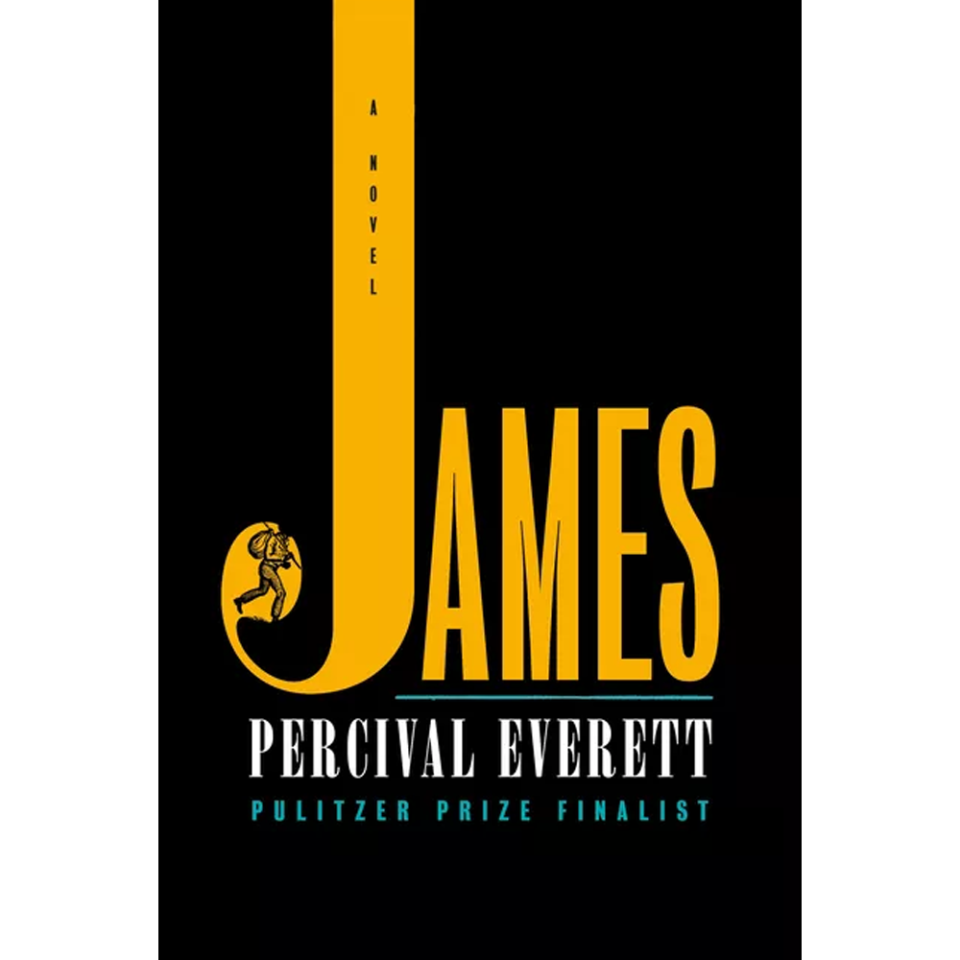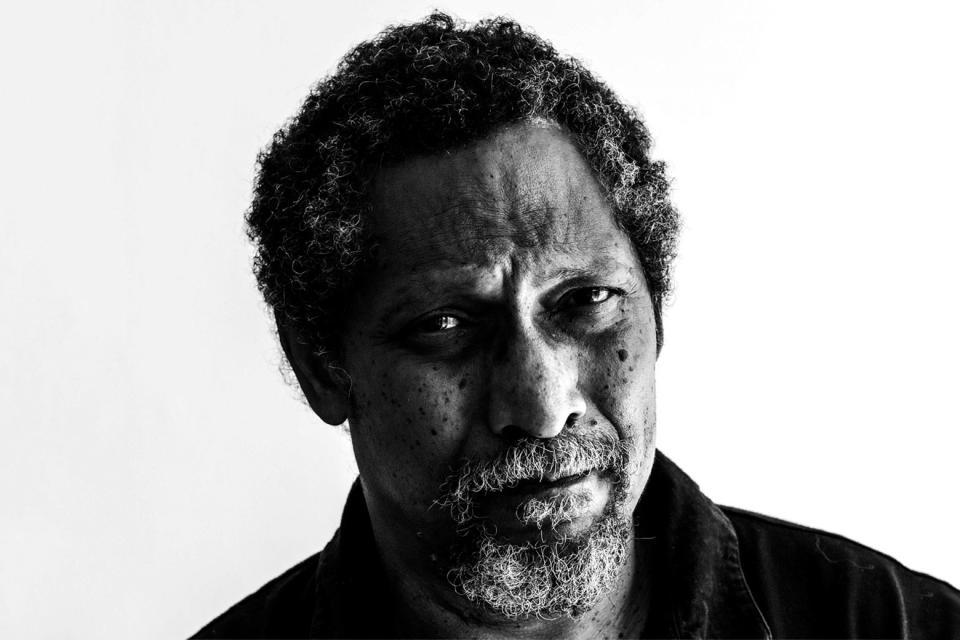An Acclaimed New Novel Retells Huck Finn From Jim’s Perspective—or Maybe Something Sneakier Is Going On
- Oops!Something went wrong.Please try again later.
- Oops!Something went wrong.Please try again later.
Percival Everett’s James is being marketed as a retelling of The Adventures of Huckleberry Finn, but—in keeping with Everett’s history as a jazz musician—it’s more like an improvisation on Twain’s theme. In the original, considered by many to be the great American novel, Jim is the enslaved man with whom Huck travels down the Mississippi. In Everett’s novel, he sheds the diminutive nickname for a more substantial first name, but when Huck asks him what surname he’d choose for himself, he picks “Golightly”—which is either a very out-of-left-field Truman Capote reference or a sign that this novel is not as heavy or straightforward an exercise as it first might appear.

When Everett thought of writing Jim’s side of Huck Finn, he was surprised that no one had ever delivered that story before. The two fugitives are separated for a long section of Twain’s novel, and Everett creates many episodes—some dizzyingly ironic, others horrifying—to fill that missing space. In Everett’s imagining, the enslaved people of the antebellum South only speak in dialect when white people are around. James has taught himself to read and write by sneaking into Judge Thatcher’s library, and has absorbed a deep shelf of Enlightenment classics. During the most delirious moments of his sojourns—after being bitten by a rattlesnake, say—James grills the European philosophers he’s studied for their shameful positions on slavery and race. He scolds John Locke for writing the constitutions for Barbados and Carolina, documents that enshrined slavery, and Voltaire for believing in the inferiority of Black people despite his abolitionism. Everett even has the phantom Voltaire stealing a deft expression of his ideas from the feverish James:
“You have a notion, like Raynal, of natural liberties, and we all have them by virtue of our being human. But when those liberties are put under societal and cultural pressure, they become civil liberties, and those are contingent on hierarchy and situation. Am I close?”
Voltaire was scribbling on paper. “That was good, That was good. Say all of that again.”
Meanwhile, in the presence of flesh-and-blood white people, James says things like “When be da last time Tom Sawyer telled you anythin’ true? ’Member when he told you ’bout dat gold and da rainbo?” He teaches his wife and two daughters to read—a dangerous activity should they ever be discovered by the whites. But most of the time there seems little threat of white people discovering this particular transgression. In James, Southern Black people scrupulously maintain a facade of passive, superstitious ignorance and instruct their children on how to perfect it. You don’t call out “Fire!” when you see a house aflame, James explains to his daughter, you say “Lawdy, missum! Looky dere,” because, as the girl recites, “they need to know everything before us. Because they need to name everything.” Besides cruelty, Jim concludes, “the most notable white attribute was gullibility.” They believe in this massive deception because they want so badly for it to be true.
For Huck, the pair’s flight is only partly perilous; he’s escaping his alcoholic father and the unwanted “civilizing” ministrations of his guardians. He’s still enough of a child—a free child—to crave adventure. “I admired that,” James thinks when he realizes this, “was envious of it, to tell the truth, to be able to feel that in a world without fear of being hanged to death, or worse.” The worse is on ample display in James: He bears witness to rape, torture, murder, and other forms of abusive oppression considerably more abominable than anything described in Twain’s novel. The Duke and the King—amusing conmen in Twain’s novel, at least until they sell Jim—become more malevolent figures under James’ more skeptical gaze.
After he’s separated from Huck, James’ experiences become increasingly absurd. Daniel Decatur Emmett, the leader of a traveling minstrel show, overhears James singing and purchases him but, because he doesn’t believe in slavery, claims to be “hiring” him instead. (Emmett, a historical figure, is the author of the song “Dixie” and the founder of the first blackface minstrel troupe.) Because Black men aren’t allowed onstage, James has to be made up to look like a white man wearing blackface. Another member of the troupe, Norman, who is a light-skinned escapee passing as white, shows James how to do the makeup and becomes his friend and traveling companion for a while. As Norman explains the minstrel act to James,
”They even do the cakewalk.”
“But that’s how we make fun of them,” I said.
“Yes, but they don’t get that—it’s lost on them. It’s never occurred to them that we might find them mockable.”
After James and Norman flee Emmett’s troupe, they stow away on a steamboat where they meet an enslaved man who is working in the boiler room. The boiler man, Brock, never leaves the boiler room, devoted to a master he hasn’t laid eyes on for years. “I don’t think there is a master,” James tells Norman. “He’s just down here keeping this boat afloat and moving along this river.” Brock is a nod to Lucius Brockway, the equally obsessed and territorial boiler man in Ralph Ellison’s Invisible Man, a novel that also flirts with surrealism to convey the absurdity of trying to survive while Black. Everett’s fiction is always rich in literary and cultural references. Toward its end, the novel sometimes seems to be adopting plot choices from pop culture, not always to plausible effect; it concludes, startlingly, like a Western, satisfying but also a bit too satisfying.

But hold on just a minute there! This is a novel by Percival Everett, the trickster-philosopher of American literature, the writer who gave us Erasure, the novel on which the movie American Fiction is based. In Erasure, Thelonious “Monk” Ellison—author of several high-concept, low-selling experimental novels—becomes so disgusted with the publishing industry’s blinkered insistence that Black fiction depict ghetto life that he writes a prank novel in the voice of an illiterate thug and submits it to editors as an insult. Instead of getting the joke, they love the book, and Monk even finds himself on a prize committee with a bunch of white judges who want to give it a prestigious award.
Everett published Erasure in 2001, well into a career spent writing books not unlike Monk’s, a career in which he did not sell particularly well or win any of the big prizes—prizes he hates and calls “offensive,” anyway. In Erasure, Everett satirized a 1990s literary landscape in which novels like Sapphire’s Push landed big advances and “street lit,” or urban fiction, was enjoying a heyday. As Jason England recently pointed out in a fiery piece on American Fiction, that landscape has shifted: “Colson Whitehead has a pair of Pulitzers, Jesmyn Ward has two National Book Awards, Terrance Hayes is in Dove commercials, the MacArthur Fellows list is teeming with black writers.” But Whitehead spent years writing quirky, inventive novels about zombies, teenagers in Sag Harbor, and elevator repairmen, to middling success. Only with The Underground Railroad and The Nickel Boys—quirky, inventive novels set in the past, depicting (among other things) a veritable catalog of Black suffering and trauma—was he catapulted into the literary firmament and onto bestseller lists.
“White people love feeling guilty,” James announces, even though few of the white people in the novel seem much troubled by their consciences—so which white people is he talking about, exactly? Knowing Everett’s impish propensities, it’s impossible to read James—among other things, a litany of atrocities visited upon Black characters, set in the past—and not wonder if he’s still needling gullible white readers about what we expect from Black novelists. If he’s mocking us, well, he’s earned that right. Maybe he’ll even win a Pulitzer.

